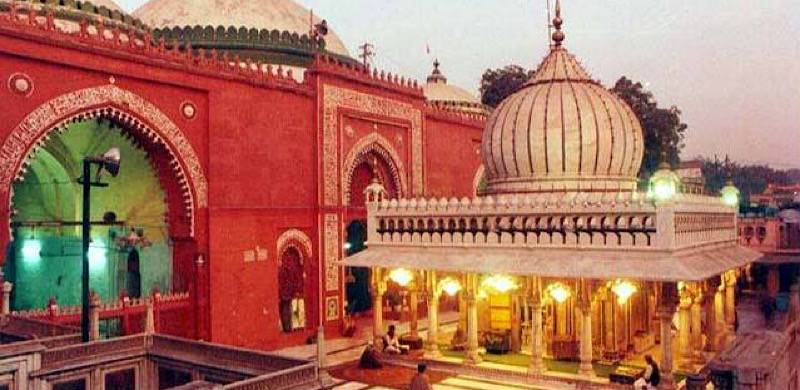
Hindus do not normally go to masjids, and Muslims do not normally go to mandirs. But both go to places called dargahs. In fact in dargahs in India (which are managed by certain Muslim families like the Chishtys), there are usually more Hindus than Muslims who go there. That is why I often visit dargahs, because they unite people of all communities, and I love whatever unites us.
Dargahs are shrines built on graves of Sufi saints. Bigoted people like the Wahabis regard visits to dargahs as idol worship (but parasti), because they say that in dargahs graves are worshipped, whereas Islam requires worship of only Allah. That is why no Dargah is permitted in Saudi Arabia, which is ruled by the Wahabis. In Pakistan, while a large number of Muslims go to dargahs (e.g. the Dargah of Baba Farid), sometimes they are bombed by bigoted people.
However, it is a false notion that in dargahs the graves of Sufi saints are worshipped. The Sufi saints had spread the message of brotherhood of people of all religions, tolerance, and compassion for all human beings. So visiting dargahs is only paying respect to such Sufi saints, not worshipping them. I am an atheist and do not worship anything, but I often visit dargahs (e.g. Ajmer Dargah, Nizamuddin Chishty Dargah, etc) for paying respect to the sufis who spread love, tolerance, brotherhood and compassion in society.
My favourite Dargah is the Dargah of Hazrat Moinuddin Chishty in Ajmer, which I have visited often, because the great Mughal Emperor Akbar, who propounded the doctrine of suleh-e-kul or giving equal respect to all religions (see my article 'Emperor Akbar--the real Father of the Indian Nation' on my blog Satyam Bruyat), often visited it. However, I have visited many other dargahs too, e.g. Nizamuddin Aulia Dargah in Delhi, Dargah of Syed Hazrat Moosa Shah Qadri in Chennai (which I would often visit when I was Chief Justice of Madras High Court) etc.
The annual death anniversary of the Sufi saint is not mourned but celebrated in dargahs, in a ceremony called Urs, with Qawwali music and feasting, because it is believed that on that date the saint was united with God.
In the langars (free feasts) in dargahs vegetarian food is served, out of respect for Hindus, many of whom are vegetarians.
Qawwali is a form of spiritual music, which is often sung in dargahs. In the Dargah of Sheikh Salim Chishty in Fatehpur Sikri I heard Muslim singers singing Qawwali music in praise of Hindu gods like Rama and Krishna. This also shows the secular nature of dargahs.
In today's atmosphere, when certain elements are trying to polarise Indian society on religious lines, the role of dargahs assumes greater importance as a uniting force.
